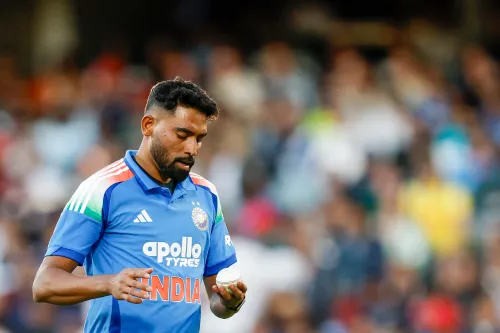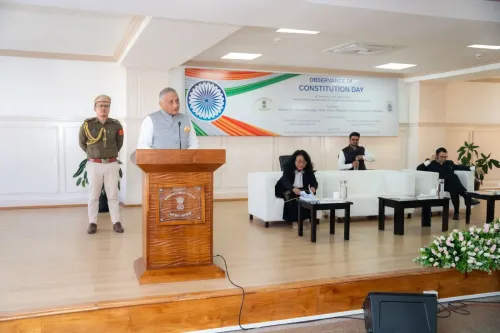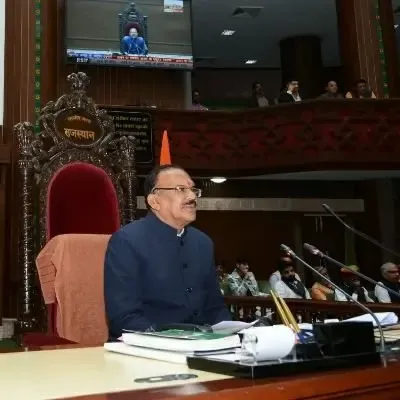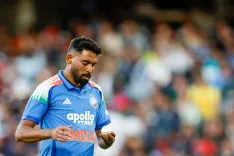Why Did the SC Withdraw Its Order on Allahabad HC Judge's Criminal Case Restrictions?
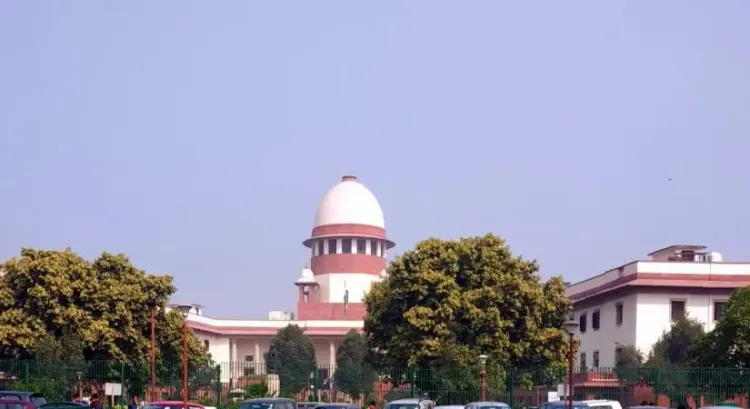
Synopsis
Key Takeaways
- Supreme Court rescinded restrictions on Allahabad HC judge.
- Judicial dignity and authority remain paramount.
- Chief Justice of India intervened in the matter.
- Litigants expect fair justice delivery.
- High Courts must uphold the rule of law.
New Delhi, Aug 8 (NationPress) In response to a communication from the Chief Justice of India (CJI) B.R. Gavai, a two-judge Bench of the Supreme Court has amended its prior directive that restricted a judge of the Allahabad High Court from overseeing criminal cases. On August 4, the Bench, consisting of Justices J.B. Pardiwala and R. Mahadevan, not only overturned a decision made by the Allahabad High Court but also instructed the removal of the judge from handling criminal matters.
Additionally, it was mandated that if the judge were to be assigned a single-bench roster, no criminal cases could be allocated to them.
However, these stringent instructions—found in paragraphs 25 and 26 of the original ruling—have now been rescinded.
In the updated order, the Justice Pardiwala-led Bench highlighted that although the initial directives arose from concerns regarding repeated incorrect rulings, they never intended to “embarrass or cast aspersions” on the judge in question.
“When matters cross the threshold and the dignity of the institution is imperilled, it becomes the constitutional responsibility of this Court to intervene,” the Bench stated.
The Supreme Court reiterated that the previous statements were made to uphold the dignity and authority of the judiciary in the public's perception.
“Litigants in this country approach various courts to seek justice. For 90 percent of these individuals, the High Court serves as the final arbiter of justice, with only the remaining 10 percent having the means to escalate their cases to the Supreme Court. Litigants expect the justice system to operate lawfully, not to yield absurd or irrational orders,” the Court remarked.
Respecting the CJI’s request, the Justice Pardiwala-led Bench decided to revise the earlier order.
“In due consideration of the written request from the Hon’ble Chief Justice of India, we hereby remove paragraphs 25 and 26 from our order dated August 4, 2025,” the order stated.
While the contentious directives have been annulled, the apex court clarified that the Chief Justice of the Allahabad High Court maintains complete administrative authority over the roster.
“We fully recognize that the Chief Justice of a High Court is the master of the roster. Our directives do not infringe upon the administrative power of the Chief Justice of the High Court,” it affirmed.
The Justice Pardiwala-led Bench expressed optimism that the Supreme Court would not have to confront such perverse and unjust orders from any High Court in the future, stressing that High Courts should consistently uphold the rule of law and preserve institutional credibility.
“If the Rule of Law is not safeguarded within the court itself, it would signify the demise of the entire justice delivery system in the country,” cautioned the Supreme Court.
In concluding the Special Leave Petition (SLP), the Justice Pardiwala-led Bench ordered that a copy of the judgment be sent to the Chief Justice of the Allahabad High Court.

